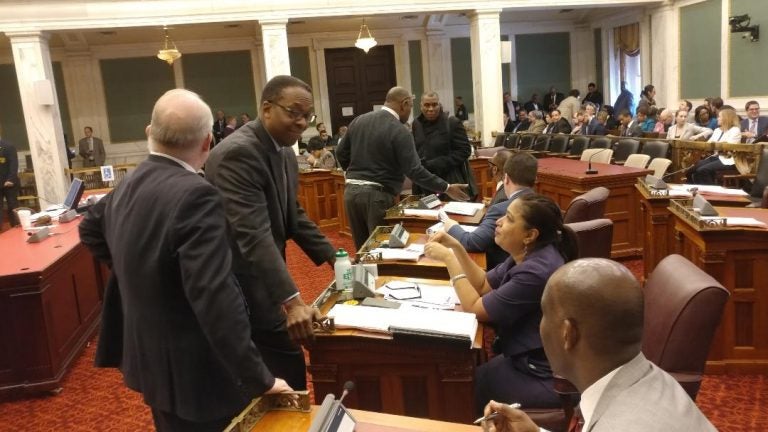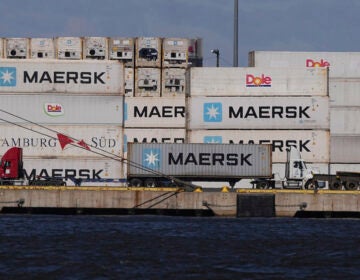Philadelphia Council presses for answers on borrowing, money lost on police HQ
Council members also seek update on projects stalled by the extended court challenge to the city's sweetened beverage tax.

Philadelphia City Council members discuss budget. (Tom MacDonald/WHYY)
Members of Philadelphia City Council want to know why the Kenney administration is asking to borrow more money in the new budget when it hasn’t yet spent the funds it borrowed for this fiscal year.
The loan officials seek would finance a new police headquarters, $178 million in street resurfacing and construction of wheelchair-access ramps among other projects.
Officials are doing their best to spend down current borrowing and to ensure essential projects are not delayed, said Anna Adams, budget director.
“We try to just allocate money for the projects that we know the departments have the capacity to use — and also to just finish off a project if they are waiting for appropriations to finish off a project,” she said during a Tuesday hearing on the budget plan. “We know there are some challenges to spending that, and we are trying to do better than we have done in the past.”
Council members also asked about projects stalled by the extended court challenge to the city’s sweetened beverage tax. The city lacks reserve funds to finance those projects should the courts overturn the tax, so officials want to wait to funnel money into the Rebuild initiative — a seven-year, $500 million investment in Philadelphia’s parks, recreation centers, playgrounds and libraries.
On Tuesday, the Council also asked for more details on the status of plans for a new police administration building — and what the city’s tab might be now that a facility that had been tapped for that purpose is no longer in the picture.
The building at 4601 Market St. in West Philadelphia was heralded by the Nutter administration as the perfect spot for the new headquarters, but the Kenney administration opted for 400 North Broad St., the former Inquirer building.
Anne Fadullon, planning and development director, said the city has already spent nearly $50 million on the West Philadelphia property.
“I do think we will get more for the property than what we purchased the property for, but we will probably not get anywhere close to the $50 million,” she said.
She would not elaborate on how much more than the purchase price the city hopes go get for the building. It cost $4 million, but addressing environmental issues cost $13 million. Roof and facade reconstruction cost another $11 million, while costs of designing the headquarters and other facilities reached $18 million.
The city has issued a request for proposals for the future of that property, and Fadullon said those plans continue to be submitted.
“The responses we got were across the board, they were a variety of uses — office, health, education, residential — so they were a variety,” she said. “Almost everybody put forth some kind of mixed-use project.”
Final proposals from developers are expected to by April 16.
WHYY is your source for fact-based, in-depth journalism and information. As a nonprofit organization, we rely on financial support from readers like you. Please give today.





